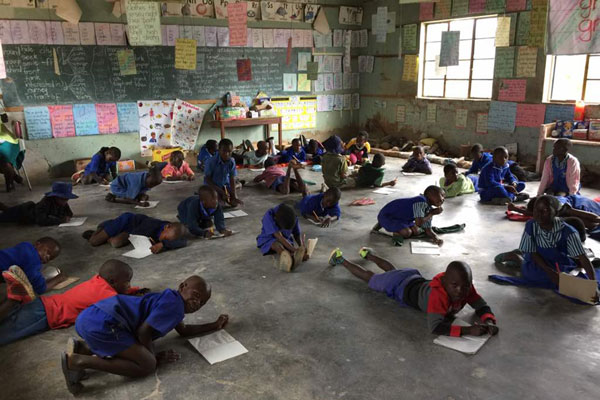
By Nhau Mangirazi
MUTOKO — Globally, menstrual periods are still causing thousands of girls to miss school time and again, but a community programme in Kawaza village in Mutoko has offered young women an opportunity to stay in school.
Twelve-year-old Tarisai (not her real name), who is doing Grade 6 at Kawazva Primary School, could have missed her classes for almost a month since January this year due to monthly periods, but that has become a thing of the past.
Tarisai is now part of a community-based programme Sista2Sister, whose aim is to empower girls, particularly in areas to do with sexual reproductive health.
‘‘Whenever a girl reaches puberty stage, without available water, you are affected and feel out of place during monthly periods. You do not feel safe to be at school. What makes it worse is lack of water (to wash oneself), as the natural cause cannot be stopped. It is about how you react to it through availability of water,” Tarisai told NewsDay Weekender.
The initiative teaches them on issues to do with sexual harassment and abuse and issues surrounding menstruation, which include proper hygiene.
As a buffer to this programme, a solar-powered borehole has been installed with support from the United Nations Children’s Fund to ensure that the girls have access to clean water and can practice good hygienic practices while on their period.
“This is a difficult time for girls and women in general. With availability of water, girls here are empowered. Once she messes herself, there is water available in our toilets and taps,” a teacher at the school said.
- Chamisa under fire over US$120K donation
- Mavhunga puts DeMbare into Chibuku quarterfinals
- Pension funds bet on Cabora Bassa oilfields
- Councils defy govt fire tender directive
Keep Reading
The solar-powered borehole is also now part of the “retention card” for staff members at the school.
“Of late, teachers used to snub deployment here due to water challenges, but for the past three years, we have maintained our staff compliment because they now have access to clean water without hindrance. This is a positive move for us and the community,” another male teacher, who could not be named for professional reasons, said.
Mutoko Rural District Council chief executive Peter Sigauke applauded the water and sanitation programme in the area.
Sigauke said Kawazva School planned to venture into full-scale gardening and fish-farming meant to generate income for the school.
“As a local authority, we are grateful that solar-powered boreholes have transformed communities under Masango and Kawazva, among others, where women are now champions in water and sanitation programmes. They no longer spend too much time fetching water and school pupils are well covered on hygienic issues as water is basic human right for everyone,” he said.
For many girls like Tarisai, her dignity has been restored following the installation of solar-powered boreholes around parts of Mutoko district.











